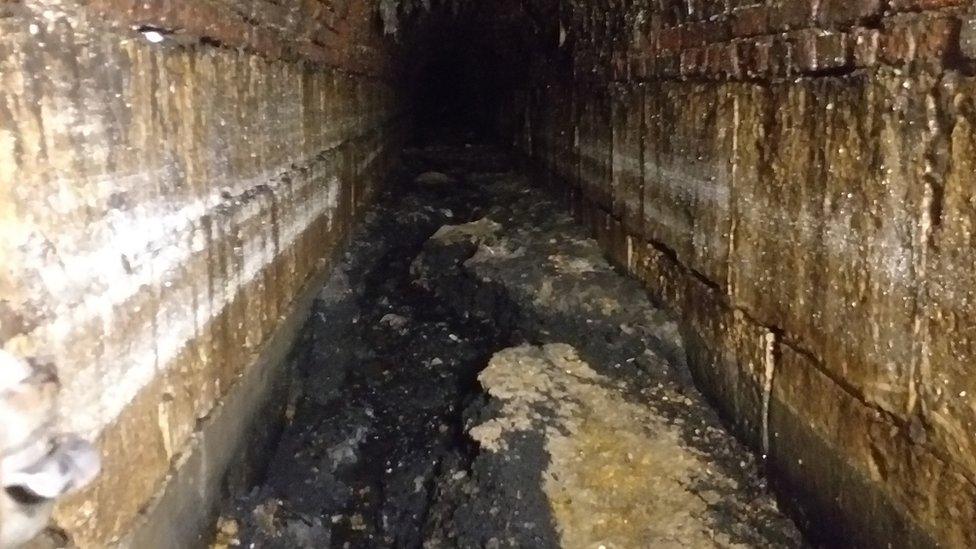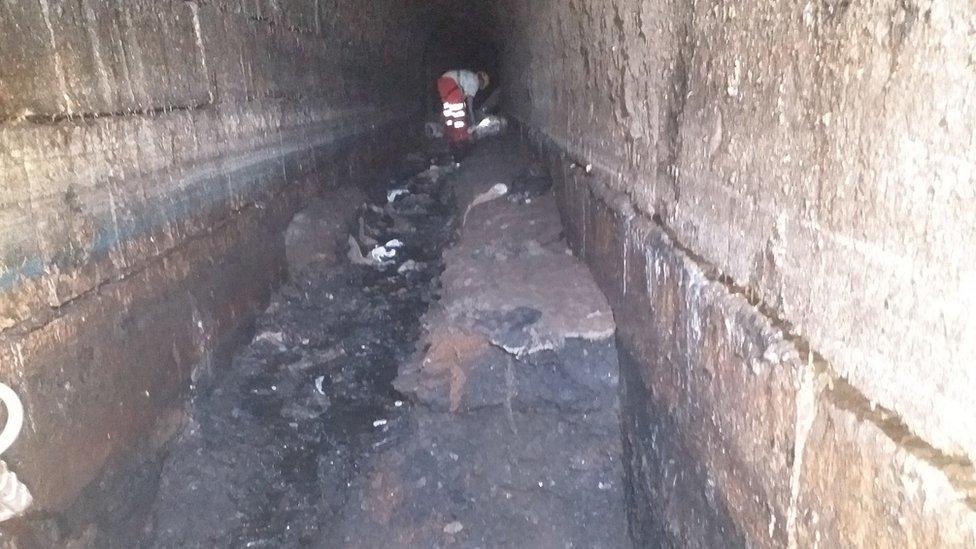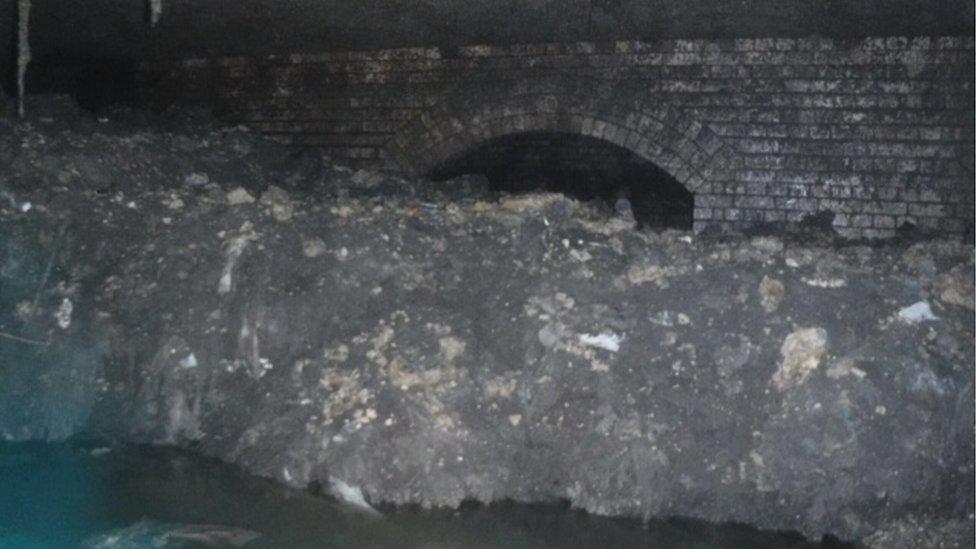'Monster' fatberg removed from Plymouth sewer
- Published

A fatberg was discovered in a Plymouth sewer
A 50m(164ft) build up of hardened fat, oil and wet wipes - known as a fatberg - has been removed from a coastal city's sewer.
The fatberg, more than a metre wide and a metre deep, was discovered in a Plymouth sewer in December 2020.
The removal and clean up process took four people 34 days to complete.
South West Water's director of wastewater operations said it cost "nearly £100,000" to "remove this monster".
"This is a serious reminder of the problems caused by products such as baby wipes, hygiene wipes, moist toilet tissues, cleaning wipes, cleansing pads and sanitary products, which don't break down in the same way that toilet paper does," said Mark Hillson.
It involved removing more than 88 tonnes of debris in "exceptionally challenging work conditions" he added.

It took a team of four people 34 days to remove the fatberg
Mr Hilson also asked customers not to dispose of cooking fats, oils and greases down the sink, to avoid blocking the pipes.
The fatberg was found in a sewer which feeds the Edinburgh pumping station in Devonport, Plymouth.
To remove the blockage, temporary overland pipes were used to divert flows from the sewer due to the volume of wastewater.
Because the debris was so compacted the team had to break it up with picks, crow bars and hammers, as well as removing large lumps in buckets to be taken to landfill.
In 2018, a 210ft (64m) fatberg was removed from Sidmouth in Devon.

Follow BBC News South West on Twitter, external, Facebook, external and Instagram, external. Send your story ideas to spotlight@bbc.co.uk, external.
- Published28 March 2019

- Published6 February 2019

- Published8 January 2019
